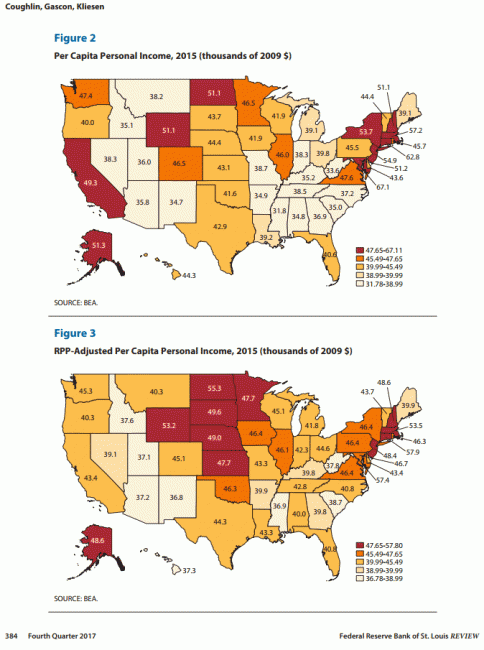I must say I was tremendously surprised when a reader sent me this interview and book review, which is summarized thus:
In her powerful new book, “Nomadland,” award-winning journalist Jessica Bruder reveals the dark, depressing and sometimes physically painful life of a tribe of men and women in their 50s and 60s who are — as the subtitle says — “surviving America in the twenty-first century.” Not quite homeless, they are “houseless,” living in secondhand RVs, trailers and vans and driving from one location to another to pick up seasonal low-wage jobs, if they can get them, with little or no benefits.
The book seems to be mostly focused on Amazon, at least from what I can glean from this interview, and I will say that I am pretty much totally unaware of working conditions at Amazon or how happy their employees are, so I cannot comment on them. I do know that Amazon seems to be starting to eclipse even Walmart as the new target for progressive teeth-gnashing about working conditions.
However, the author seems to be painting with a pretty broad brush here, and is trying to apply her comments to all "workampers," or folks who have given up a settled lifestyle and live a quasi-nomadic lifestyle in an RV. I am very familiar with this basic concept, as my company hires about 350 of these folks every year to live and work in the campgrounds and recreation areas we operate (this is how the camp host job works).
The article was surprising because I get about 25,000 applications every year from these workampers for about 50 open job positions. It seems like something people really want to do. People call me begging me for a job, which includes both physically easy tasks (e.g. checking in campers) and physically more difficult tasks (e.g. cleaning bathrooms and raking). Most of our employees love the experience, and articles like this one about our hosts and how much they like the work are not uncommon.
Anyway, I wanted to offer a few random thoughts on this interview:
- It is really common, especially among progressives, for folks to say some sort of employment is objectively bad mainly because they would not want that particular job. This has been a feature of "sweatshop" criticism for years. Underlying much of the critique is the feeling that "I could never imagine working for $2 a day" so it must be bad. Of course you can't imagine it, and neither can I -- as Americans we fortunately have many better choices. But for someone in Vietname whose family has been subsistence farming for generations for less than a $1 a day in back-breaking work where harvests can fail and the whole family perish from starvation, a $2 a day factory job might seem like a gift from heaven.
- It is not clear to me why the employers of these older folks are at fault. The author asserts that no one else will hire these folks, that this is their only choice -- "Few have chosen this life." If this is so, why place the blame on the only folks willing to hire these people? I can understand if Amazon were luring people out of comfortable professional jobs on false pretenses that this would be unethical, but why are they to blame if they hire the otherwise unemployable? I would think that makes them a hero.
- It strikes me that 20 years ago, authors like this one were writing pieces about age discrimination and how terrible it is that no one will hire old people. Now we learn the opposite, that companies are terrible for hiring them. Forty years ago the author might have been writing about how stultifying middle American suburbs and corporate life were, but now we learn that folks who choose to be nomadic and try some alternative need to go back to the suburbs.
- I honestly have no idea what this even means: "We live in a culture where if your number didn’t come up, you’re a bad person, you’re lazy, you should be ashamed of yourself. It eats away at people. It makes them more exploitable." Let me tell a story. I do not hire managers from the outside -- everyone I promote to manager has to have worked for me at least a year as a front-line camp host. Some of the folks that get promoted were managers in their former careers, but most never were. In fact, I have many managers who never even considered that they could ever manage people, and suddenly discover at the age of 65 or 70 that they can do it. Seeing this happen is the greatest joy in my job. I don't know how to reconcile this with the author's statement.
- The author wants to blame this all on the 2008 financial crisis, but I guess that is confusing. I know it took a long time for folks to get jobs back who lost them, and I don't want to minimize the pain of that, but she implies this is a lot about people losing all their savings. "I talked to one couple, Barb and Chuck. He had been head of product development at McDonald’s before he retired. He lost his nest egg in the 2008 crash and Barb did, too." I have no doubt this sort of thing happened, but frequently? All our investments took a hit in 2008 and 2009 but almost everything is higher now than in 2008. It would have taken some heroically bad choices (or a lot of leverage) to lose absolutely everything,
- The one thing I think the author and I would agree on is that the current retirement system is unsustainable. However, I think we would come to vastly different conclusions. She says, "We saw in the 1980s a shift from pensions to 401(k)s; that was a raw deal for workers. These retirement plans were marketed as an instrument of financial freedom, but they were really transferring risk from the shoulder of the employers to the backs of the workers." This is only partially true. If one is working at Sears with a traditional pension, one likely has way more risk right now (with Sears teatering on bankrupcy and your savings effectively invested all in one company) than if one had a 401(k) invested in the S&P500. However, I would argue that what is broken in the retirement system is the assumption that everyone has a right to a 30 year mostly-healthy end-of-life vacation. When pensions were first started, people did not live much longer than they worked. Now they do. Good! But our retirement system and our expectations for it have not changed. One only has to look at the State of Illinois to see the end game of these mismatched assumptions.
- (added as an update): To the point about "exploitation". Imagine a person in a small town with a home and she works in the local factory, really the only major employer in that small town. If she thinks she is getting hosed at work, what can she do? She can certainly quit, but then she likely must sell her house, find a new place to live, move to a new city, etc. Basically, she has high job switching costs and thus probably would have to put up with more cr*p before she would leave. Now imagine our work campers. I once had an employee tell me that I had to treat him well, because he had wheels on his home and could leave any time. And he was right. Work campers, being more mobile, have much lower job switching costs. Economically, doesn't this make them less, rather than more, vulnerable to exploitation?
- Note, when asked to point to true exploitation (rather than just less-than-ideal jobs) who is the one example she can think of:
You write that sometimes the Nomads are exploited. How?
I filed a Freedom of Information Act request with the Forest Service and learned that some of their workers aren’t getting paid for all their hours. They weren’t allowed to invoice.
A few years ago one branch of the Federal government, the Department of Labor, decided that it was a morally urgent to make sure everyone working in a Federal campground operated by a private company like mine should make at least $10.15 an hour, and imposed this special minimum wage. And we complied. But then another branch of the Federal government, the US Forest Service, decided that it could now run the campgrounds cheaper themselves because they could staff it with volunteers and not pay this minimum wage. Apparently it is not morally urgent for them to pay the minimum wage. While the USFS sometimes pays hosts a stipend, this stipend, as the author notes above, is well below even state minimum wages and certainly well below the campground concessionaire minimum wage set by the DOL. I find it not at all surprising the best example of true exploitation comes from the government. However, how much do you want to bet this author asks that we rely on government to eliminate imagined exploitation in the private world?
Postscript: It reflects classic middle class snobbery to call these folks "homeless". I have hired nearly thousands of work campers over the years and have yet to meet one who considers themselves to be homeless. They would say they have a home -- and it has wheels on it.



